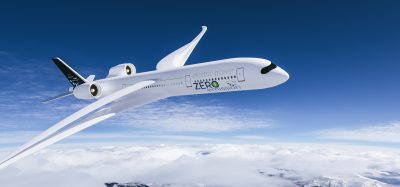The ICAO CORSIA Agreement: A sustainable future for air transport
- Like
- Digg
- Del
- Tumblr
- VKontakte
- Buffer
- Love This
- Odnoklassniki
- Meneame
- Blogger
- Amazon
- Yahoo Mail
- Gmail
- AOL
- Newsvine
- HackerNews
- Evernote
- MySpace
- Mail.ru
- Viadeo
- Line
- Comments
- Yummly
- SMS
- Viber
- Telegram
- Subscribe
- Skype
- Facebook Messenger
- Kakao
- LiveJournal
- Yammer
- Edgar
- Fintel
- Mix
- Instapaper
- Copy Link
Posted: 23 February 2017 | Olumuyiwa Benard Aliu | ICAO Council President | No comments yet
ICAO Council President, Olumuyiwa Benard Aliu, provides an overview of the historic ICAO sustainable development agreement….
The 39th Session of the ICAO Assembly, which took place in September and October 2016, represented a significant milestone. Not only did it set new records for the levels of participation ICAO saw from world governments and air transport sector industry groups, but it also saw them forge a new landmark agreement on a global market-based measure (GMBM) for international flight emissions. ICAO Council President, Olumuyiwa Benard Aliu, provides an overview of this historic agreement.
The Carbon Offset and Reduction Scheme for International Aviation (CORSIA) was a determined and resolute step by the international community to mitigate greenhouse gas emissions, fully consistent with the spirit and substance of the Paris Agreement roughly one year earlier. It also demonstrated, yet again, aviation’s renowned leadership in driving pragmatic progress through concerted and truly global cooperation.
Aviation emissions and the global perspective
The global air transport network today manages some 10 million passengers daily on roughly 100,000 scheduled flights. It also carries more than one third of world trade by value. This helps to explain how aircraft operations generate $2.7 trillion in added global GDP, while employing some 63.5 million people directly and indirectly.
Aviation is also being increasingly recognised as a key enabler of governments’ broader socio-economic development targets, and ICAO has, in fact, mapped out its role in support of 13 of the 17 UN Sustainable Development Goals currently being pursued under Agenda 2030. It is in the context of these very positive contributions to global mobility and prosperity that we must also accept that air transport operations are currently responsible for roughly 1.3% of man-made CO2 emissions.
While this percentage may seem small, governments, airlines and other agents have clearly recognised that it cannot be permitted to double in lockstep with the number of flights our network manages. This acknowledges the cycle whereby air transport network flight and passenger volumes have doubled every 15 years since we began to record these metrics as a sector back in the 1970s, and we are fully poised to see them double again by 2030.
A solid record on successful emissions action
ICAO had already begun the very complex process of defining the infrastructure and air navigation systems modernisation requirements needed to efficiently manage this growth. The results of those consultations with industry and States provided the rationale for the lion’s share of the targets and roadmaps now established under our complementary Global Plans for Aviation Safety and Air Navigation (the ‘GASP’ and the ‘GANP’). Likewise, we have established a Next Generation of Aviation Professionals (NGAP) programme to raise awareness on the human resources challenges it presents. Our current ‘No Country Left Behind’ strategy places new priority on giving States the tools and assistance they need to be more fully ICAO compliant and prepared to take advantage of the benefits of air transport growth.
Furthermore, at our 37th Assembly, in 2010, we also initiated a global process for mitigating air transport emissions. At that event ICAO’s Member States agreed to pursue a basket of measures in support of two key aspirational goals: a minimum 2% per year fuel efficiency improvement target; and carbon neutral growth for the air transport sector from 2020. The categories of measures agreed to meet these targets focused on four main areas. The first of these, consistent with our track record and built-in market-based motivation to drive down fuel costs, was technological innovation. Modern jet aircraft aren’t 80% more fuel efficient today simply by chance.
Therefore, recognising and supporting the important and historic role of technological innovation in this undeniable progress was an obvious first step for States and industry. The second category of emissions mitigation measures focused on streamlining aircraft operations and procedures. This essentially recognised that as new aircraft avionics and air navigation systems came online, new procedures would become possible.
This is something that is being put into practice today through many new Performance-based Navigation (PBN) procedures, among others, leading to reductions in emissions. The third category of measures agreed upon in 2010 focused on the then burgeoning area of sustainable alternative aircraft fuels. Today, alternative fuels are becoming increasingly relevant to our shared emissions objectives.
Airports are beginning to distribute them; five certified production pathways have been identified (a key aspect to their overall sustainability and impacts); and more than 2,500 flights have employed them to varying extents. ICAO will be exploring this progress and some promising new developments in greater detail at an alternative fuels conference we’re convening in October 2017.
Taken together, these activities have helped air transport to so far surpass its first aspirational goal of the 2% minimum fuel efficiency improvement annually. The goal of carbon neutral growth by 2020 has proven more challenging. In light of this our sector has been working to define a market-based measure for international emissions mitigation – the fourth category for action on the environment agreed through ICAO back in 2010.
A promising future of sustainable growth
The Carbon Offset and Reduction Scheme for International Aviation (CORSIA) presented numerous diplomatic challenges both in the lead up to and during ICAO’s 39th Assembly. In fact, it was considered an impossible goal by many, especially given the wide-ranging variance in the capabilities and ambitions of the countries that needed to find common ground on it. Its ultimate agreement was further complicated by the fact that private sector organisations representing airlines, airports, and many other air transport interests needed to be brought on board with its approach, including a wide range of non-governmental organisations.
The challenge of finding common ground among all of these players required many months of detailed negotiations. However, ultimately – and largely as a result of the clear motivation on behalf of these disparate parties to take meaningful climate action – an effective solution has been decided. Importantly, the CORSIA approach is both flexible and realistic. It is also a world first for any major industry sector and demonstrates that sufficient leadership and political will exists at both national and global levels to safeguard our environment.
Of course, the adoption of the Resolution is just the beginning. Much is required between now and the 40th Assembly to make CORSIA fully and meaningfully operational from 2020. We will need to complete our work in developing and establishing the Registry framework; Monitoring, Reporting and Verification (MRV) processes; as well as the Emissions Unit Criteria – all of which are necessary before implementation can begin. However, it must also be noted that ICAO was greatly encouraged when States representing more than 80% of international traffic volunteered to participate as of the GMBM’s pilot phase in 2021.
We are very much a community of government and industry partners in the world of international air transport, and it has been very encouraging to see how strongly we have come together on behalf of our planet and its many societies in 2016. It is my hope that aviation’s leadership on climate consensus will become a helpful example for other industries in the years ahead, and lead to further concrete progress on reigning in our collective emissions.


OLUMUYIWA BENARD ALIU has been President of the ICAO Council since 2014. A Nigerian native, Aliu has previously held many positions with ICAO, including Dean of the ICAO Council, Chairman of the ICAO Council Working Group on Governance & Efficiency, First Vice President of the ICAO Council and Chairperson of the Steering Committee of the ICAO Comprehensive Implementation Plan for Aviation Safety in Africa. Prior to joining ICAO, Aliu worked for the Nigerian Civil Aviation Authority, the Federal Ministry of Aviation, and the Federal Civil Aviation Authority. Aliu also has a PhD in Technical Sciences (Aeronautics).
Issue
Related topics
Related organisations
Related regions
Africa, Asia Pacific and Oceania, Central and South Asia, Europe, Middle East, North America, United Kingdom and Ireland


















